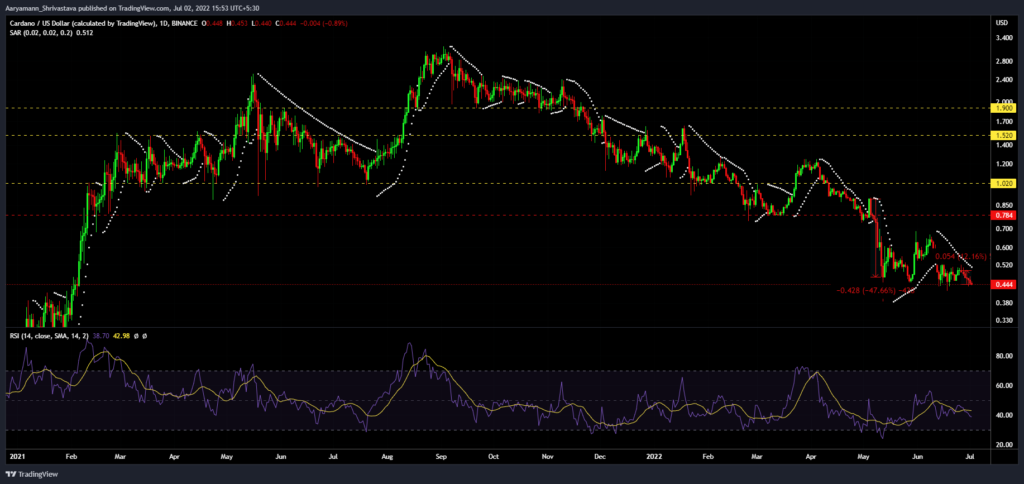Cardano [ADA] went through one of its biggest developments in June after the Vasil hard fork was activated on the testnet. This, in preparation, to bring about an overhaul of the blockchain’s smart contracts. However, the expected reaction to the event didn’t quite materialize.
Cardano fails, once again
Provided the hard fork is yet to go live on the mainnet, 28 June still marked a major milestone for the blockchain. However, the development didn’t favor the token as it was already on its way down since the beginning of the week.
Cardano price action | Source: TradingView – AMBCrypto
As a result, the third-generation altcoin was trading at a 17-month low of $0.445 during the press time. Thus, invalidating all the attempts at recovery.
These lows were expected beforehand, though. As reported by AMBCrypto, ADA is potentially bound to suffer bearishness until 1 August 2022, post which the possibility of a 125% rally may open up.
Although for the same to happen, Cardano’s investors will need to support the network. One observation made during the Vasil hype was that Cardano investors are triggered by network-related developments. Simple price action changes do not impress Cardano investors very much.
This is why when the hard fork went live on testnet, ADA holders suddenly became active on the network. According to the on-chain data, the number of transactions on the blockchain, which had been declining throughout June, noted an uptick of 33.3% by the end of the month.
The events that followed
Within 24 hours of the Vasil hard fork going live on testnet, transactions rose from 60k to 80k. Naturally, the total volume involved in these transactions also shot up from $7.5 billion to almost $9 billion.
However, the interesting development was the sudden drop in the total percentage of ADA supply staked. Investors, out of anticipation or fear, pulled out 237 million ADA in 24 hours.
Although the value of these tokens isn’t really significant, both in terms of worth and supply distribution, the instance highlights the investors’ focus on still making profits at any given cost.
Furthermore, in the last 24 hours of 2 July, the total Cardano wallets increased by 90%, from 2,200 to 4,200. This was an indication of growing participation, which will be beneficial to Cardano once the altcoin goes back up again.




